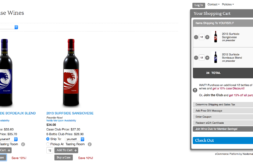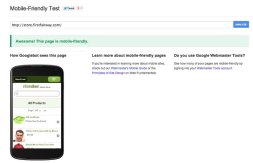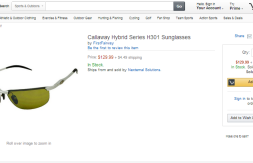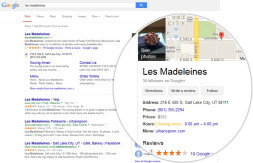10 B2B eCommerce Platform Must Haves

Just as with business to consumer eCommerce, one of the primary factors companies should look at when evaluating business to business (b2b) eCommerce platforms is ease of use. For the purpose of this article, we’ll define b2b eCommerce as either a manufacturer selling to a distributor or retailer or a distributor selling to a retailer. There are some specialty features that can take your b2b online sales from mediocre to glorious:
- Password Protected –Take the example of a brand selling directly to a retailer. It’s critically important that only select people can enter a b2b store and see the prices. If consumers can also see the prices, it is much tougher for the retailers to sell their products at full price!
- Product Pricing By Customer Type – As much as most companies would like to offer the same exact pricing to every customer, in the b2b world, it often is not reality. After successfully negotiating different price points with different customers, it’s critical for the company selling b2b to be able to show the appropriate negotiated price to the customer who is logged in.
- Product Visibility by Customer Type – In the b2b world it can’t be assumed that every customer should have access to every product. Let’s say my company is ordering branded hats from a hat manufacturer with our company logo – that product should only be available to buyers from my company. A strong b2b eCommerce system should be able to enforce that visibility.
- Volume Pricing – Orders for quantities of one are not common with b2b orders. In fact, most with most b2b transactions, the more a customer buys, the better price point they receive. Supporting volume based pricing is both necessary and provides upsell incentive!
- Payment Option Control by Customer Type – Let’s face it, not all b2b customers are worthy of NET 30 payments. In fact, for new b2b customers, you might want to insist that their first few orders are paid by credit card. A good b2b eCommerce platform will allow you to control payment options by customer type, giving your established customers more flexibility.
- Single Click Reordering – This is critical if you have a large product line. You may have some customers that only want to order a very select fifteen products from your company. Allowing them to easily add the products from their last order to their cart will save them time make them smile!
- CRM Integration – If you have reps out in the field, they are likely logging activities such as calls, in-person visits, etc. If a rep can look at an account in a CRM application and see both transactions and activities, he or she will be more educated and hence successful on the next activity.
- Back in Stock Notifications – In an inventory utopia, your buyers would be able to order any product they desire at any time. However, most of us don’t live in such a world. The next best thing is having Back in Stock Notifications. These allow your buyers to be automatically notified via email when a product is back in stock. A good eCommerce Platform will also allow you to see how many customers are waiting for an out of stock item so that you can produce accordingly.
- Product Allocations – If you are making or distributing hot-selling products, you may want to control how much of each product your customers can buy so that each customer has an opportunity to get at least SOME of that product. Product allocations enable brands and distributors to throttle hot-product sales by customer type.
- A Great API – Automation is an important key to business success. Creating efficiencies both lowers costs and reduces fulfillment times. A good b2b eCommerce platform must have a solid API so that your other business systems can communicate with it in real-time.
This is just a top 10 list and is not all-inclusive. What are some other features that you deem necessary for successfully selling in the b2b world? Please comment below!














